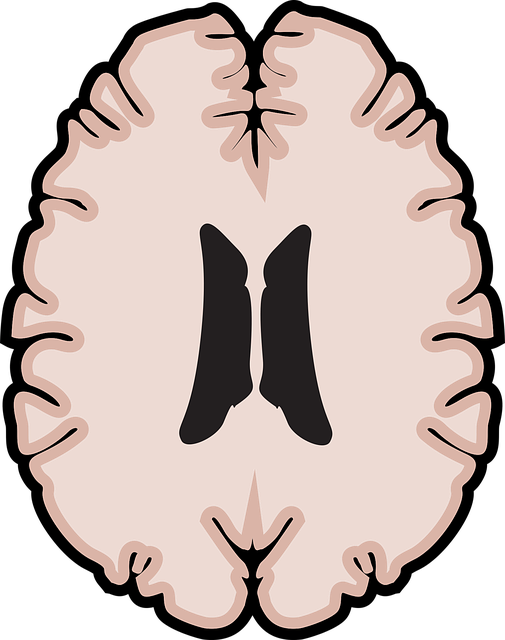Mental health advocacy is a powerful tool for transforming societal attitudes and improving access to quality mental health care, especially for those with chronic conditions. By raising awareness, challenging stigma, and promoting understanding, initiatives empower individuals with knowledge about their rights and coping strategies. Digital era approaches like online platforms and social media campaigns revolutionize mental health education. Tailored Emotional Intelligence training and Mental Wellness Coaching offer valuable tools for stress management and chronic illness therapy. Advocacy creates inclusive environments where emotional well-being is prioritized, and support systems are accessible. Specifically, Community Outreach Programs using emotional well-being promotion and conflict resolution strategies break down barriers to Superior Chronic Illness Therapy, fostering inclusive environments and enabling early intervention. Successful initiatives like the Superior Chronic Illness Therapy program showcase lasting improvements in patient outcomes and quality of life through comprehensive care, peer support, and community integration.
Mental health advocacy plays a pivotal role in shaping societal perceptions, improving access to Superior Chronic Illness Therapy, and empowering vulnerable individuals. This article delves into the multifaceted world of mental health activism, exploring its profound impact on breaking down barriers to treatment. We dissect challenges faced by mentally vulnerable folks in accessing specialized care, offer effective strategies for advocacy initiatives, and present compelling case studies highlighting successful programs that have left an indelible legacy.
- Understanding Mental Health Advocacy: Its Role and Impact
- Challenges in Accessing Chronic Illness Therapy for Mentally Vulnerable Individuals
- Effective Strategies for Mental Health Advocacy Initiatives
- Case Studies: Successful Mental Health Advocacy Programs and Their Legacy
Understanding Mental Health Advocacy: Its Role and Impact

Mental health advocacy plays a pivotal role in shaping public perception and improving access to quality care. It involves raising awareness, challenging stigma, and promoting understanding of various mental health conditions. Effective advocacy initiatives empower individuals with knowledge about their rights, available resources, and coping strategies. By fostering open dialogues, these efforts ensure that mental wellness is prioritized alongside physical health.
In today’s digital era, innovative approaches such as online platforms, social media campaigns, and community-based programs are revolutionizing mental health education. The development of tailored Emotional Intelligence training and Mental Wellness Coaching initiatives underpin a comprehensive strategy for addressing the complex needs of individuals. These programs offer valuable tools to manage stress, enhance resilience, and promote superior chronic illness therapy. Through advocacy, we can create an inclusive environment where emotional well-being is nurtured, and support systems are readily accessible.
Challenges in Accessing Chronic Illness Therapy for Mentally Vulnerable Individuals

Mentally vulnerable individuals often face significant challenges when it comes to accessing superior chronic illness therapy. Stigma and lack of awareness about mental health issues can prevent people from seeking the necessary support, leading to prolonged periods of untreated illness. This is particularly problematic for chronic conditions that require ongoing management, as inconsistent or delayed treatment can exacerbate symptoms and reduce quality of life.
Community outreach program implementation plays a crucial role in overcoming these barriers. By utilizing emotional well-being promotion techniques and conflict resolution strategies, mental health advocates can foster inclusive environments where mentally vulnerable individuals feel safe to access available resources. These initiatives not only enhance accessibility but also promote early intervention, which is key to improving outcomes for those managing chronic illnesses.
Effective Strategies for Mental Health Advocacy Initiatives

Mental health advocacy initiatives require a multifaceted approach to be truly effective. One key strategy is Community Outreach Program Implementation. By bringing mental health services directly to underserved communities, advocates can break down barriers and make therapy more accessible. This involves building strong relationships with local leaders and organizations, hosting educational workshops, and offering support groups that cater to diverse cultural needs.
Additionally, incorporating Conflict Resolution Techniques can help in navigating the challenges inherent in advocating for mental health. These techniques enable advocates to effectively communicate complex issues, manage opposition, and foster understanding. Equally important is focusing on Confidence Boosting within the advocacy community. Empowering individuals with knowledge about their rights and providing them with tools to advocate for themselves creates a collective voice that can drive meaningful change in policies and perceptions around mental health care, ultimately improving access to superior chronic illness therapy.
Case Studies: Successful Mental Health Advocacy Programs and Their Legacy

Successful mental health advocacy initiatives often leave a lasting legacy through case studies that illuminate effective strategies. One prominent example is the Superior Chronic Illness Therapy program, which focused on providing comprehensive care for individuals with long-term mental health conditions. This initiative emphasized holistic treatment approaches, including evidence-based therapy, peer support networks, and community integration. By combining medical and social interventions, the program significantly improved patient outcomes and enhanced their overall quality of life.
The legacy of Mental Health Policy Analysis and Advocacy has been pivotal in shaping public perceptions and systemic changes. Mental Illness Stigma Reduction Efforts have played a crucial role in fostering understanding and empathy within communities, encouraging early intervention, and promoting resilience building among affected individuals. These successful programs demonstrate the power of advocacy in transforming mental health care, ensuring that those facing challenges receive the support and resources they need to lead fulfilling lives.
Mental health advocacy initiatives play a pivotal role in ensuring accessible and quality Superior Chronic Illness Therapy for vulnerable individuals. By tackling barriers such as stigma, lack of resources, and systemic issues, these programs empower people with mental health conditions to lead fulfilling lives. Drawing from the successful case studies presented, it’s clear that comprehensive strategies focusing on education, community engagement, and policy change are essential for creating a more inclusive and supportive society. Continued advocacy efforts are crucial to sustain momentum and ensure lasting positive impacts on global mental health landscapes.













